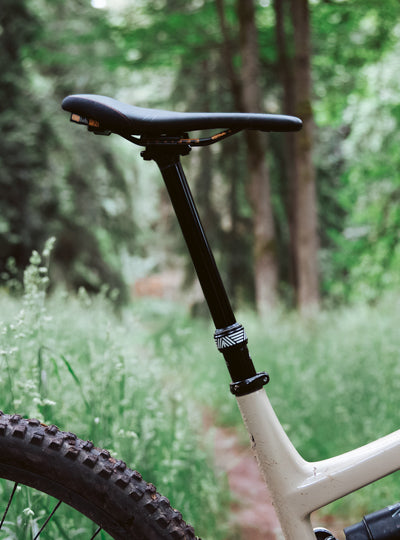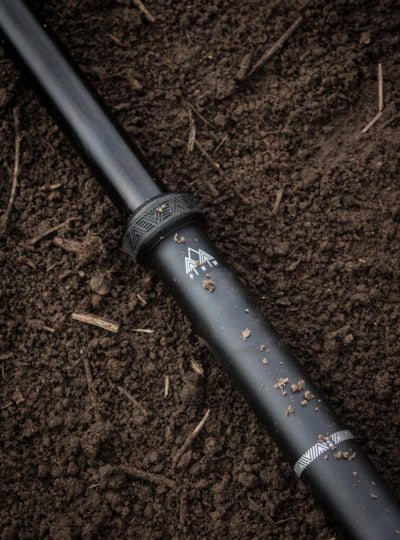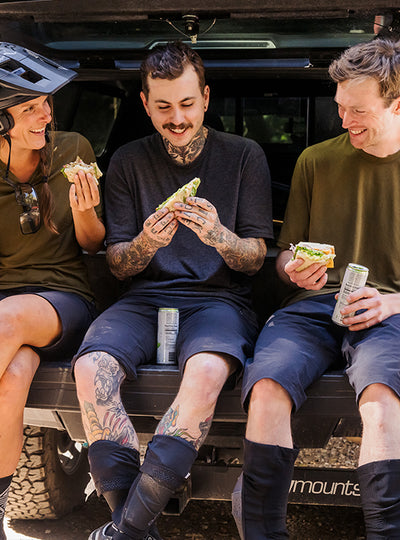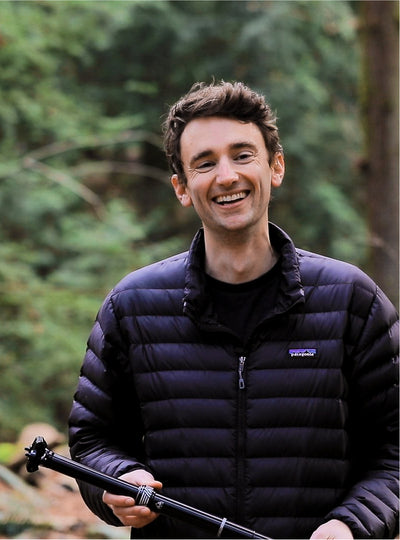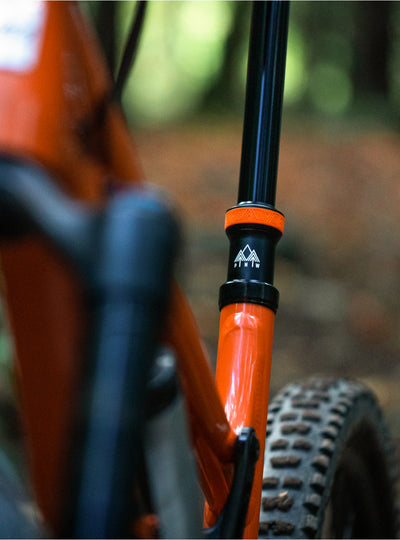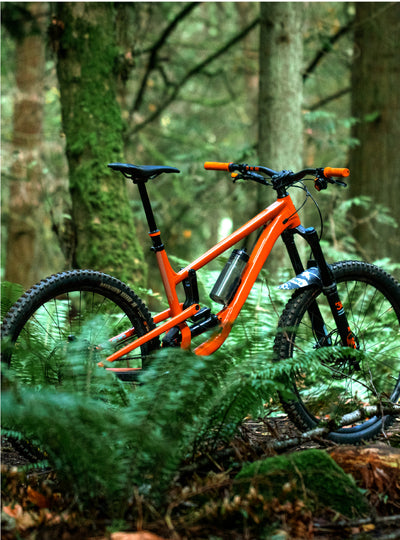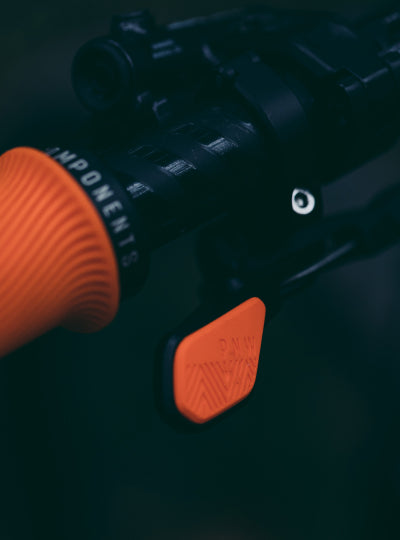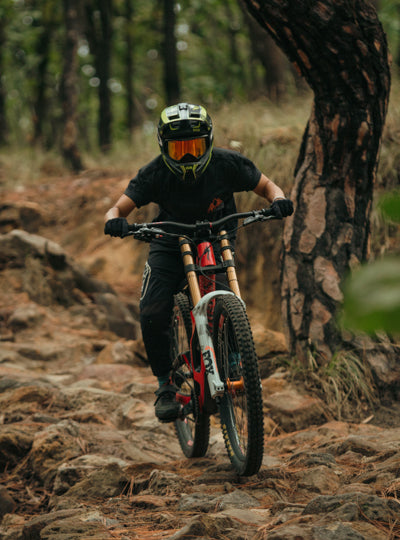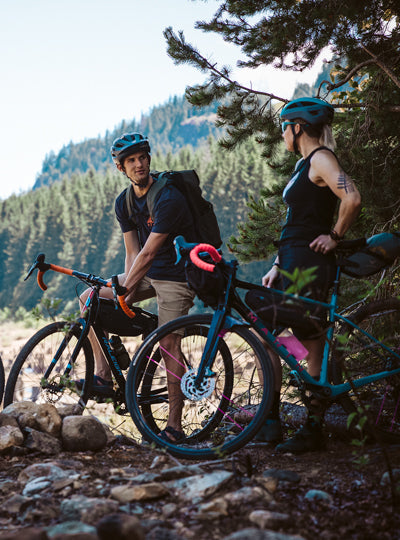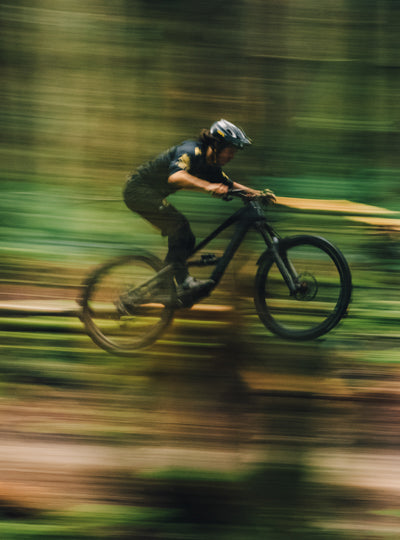In his latest episode of Local Loam, PNW Squad rider Jeff Kendall-Weed travels to Puerto Rico to ride and shed light on the growing trail networks created by the Cabo Rojo Bike and Hike Trail Association (CRBH) as well as Salinas Gravity Park. After Hurricane Maria decimated the island of Puerto Rico in 2017, the local trail builders began to rally the community to reclaim a sense of normalcy through trail building and mountain biking. While the local biking community largely focuses on cross country riding, gravity fueled mountain biking is becoming more popular as groups like CRBH and the crew behind the Salinas Gravity Park seek to expand their trails and the local riders' skillsets.
The transcript below is pulled directly from the above Local Loam episode, which includes many speakers and guests for which English is their second language. For the full experience, we highly recommend watching the video as it does a more complete job of telling the entire story of the mountain biking scene in Puerto Rico than the transcript.
Photos by Ben Gavelda

Introduction:
JKW: Local Loam tells the stories of how successful mountain bike advocates build rad riding communities through excellent trails.
I’m in Houston, Texas right now and even though this is a video about Puerto Rico, Houston has played a key part in this story. Martin works next to a fellow named John in Houston. Now John was on the board of GHORBA, the Greater Houston Off Road Biking Association. After Hurricane Harvey, john learned a thing or two about applying for grant money. And after Hurricane Maria struck Puerto Rico, he shared all those leads with Martin. I’m heading to a park here in Houston to meet John Blum, the guy who shared all that application info with Martin.
John Blum: Martin and I, we used to work together, we’re both Geophysicists, and he’s a local mountain biker I've ridden with occasionally here on the Houston trails.
On the formation of Cabo Rojo Bike and Hike and the board member’s journey to create a gravity oriented mountain bike scene in Puerto Rico:
JKW: So, who is Cabo Rojo Bike and Hike (CRBH)?
Luis Padilla (CRBH Secretary): Jansen and a couple other guys did a trip to B.C. (British Columbia, Canada) and after they came from that trip they were all hyped about how the bicycle culture in B.C. moves a town.
Jose Rivera (CRBH President): After Whistler, [Boqueron Bike and Hike] became Cabo Rojo Bike and Hike.
Jansen Colberg (CRBH Treasurer): So basically, every time that I came from a [riding] trip, and I start building trails, and I start trying to convince people to change their riding style, it’s tough. And everybody says, “Oh that’s a hard trail, we’re not going to use it, we’re not going to ride it.” That’s changing. People are starting to change their riding skills, change the trails they’re using. We’re doing it, slowly we can do it.
Eduardo Carbia (Salinas Gravity Park): There’s a huge mountain bike scene [in Puerto Rico], but it’s focused more on the modality of cross country. There’s this other chunk [of riding] which is awesome and we love it, but the people here that don’t fly to the parks, they’re never going to know about it.
JKW: They haven’t done the Whistler trip yet, they haven’t had their minds opened to what is possible on a bicycle.
Eduardo: Exactly.

Jansen: People are starting to send it. People are starting to ride full suspension bikes. Even the cross country guys now, we are riding cross country with full suspension bikes and with dropper posts and they say, “Wow, what a change?”.
Eduardo: I want to do a park, like I really want to have Puerto Rico in the park map. That’s my main goal. The main reason we’re doing this is to bring the experience that we have in the other states, in Canada, Europe, and other places. [I want] to bring that experience here to the whole mountain bike scene in Puerto Rico.
Martin Hanzlik (CRBH Board Member): I knew of Cabo Rojo Bike and Hike, even though I didn’t know Jansen or anybody else, I knew that they were out there building trails. At that point that’s exactly when they had started forming, like around 2013, and I saw the trail head. So it seemed like the most legit trail organization that I at least knew existed.
Jose Rivera (CRBH President): We just do it like friends who get together. We want to have fun, but we don’t have the trails in the conditions we want, so we do it (provide trail maintenance).
Jansen: All the jobs are done by volunteers and we’re financed by us, by ourselves. We use our private money to do that. This guy shows up, Mr. Martin Hanzlik, and he proposed to apply for a grant from People for Bikes, and we applied for the grant and we got it.

On the impact of Hurricane Maria and the grant from People for Bikes:
News Broadcaster: The first pictures now coming in from Puerto Rico after taking a direct hit. Hurricane Maria slamming into the island and as you heard, one official is saying the island is destroyed.
Jansen: My Grandmother always talked about the hurricanes in the beginning of the century and no one in this generation has seen something like that. It’s worse than your worst nightmare.
JKW: Yeah it’s one of the worst US natural disasters of all time.
Jansen: Yeah I live in a concrete house with security windows and stuff like that. And you think, “Ok, I’m safe.” And then you’re not safe when you start seeing the water come under the security windows to the inside of your house. And the doors that they sold you that hold up to 140mph winds come down and they destroy your car. It’s tough. You don’t want to live through that, trust me.
News Broadcaster: The emergency management director is saying the entire island is destroyed. Many of these homes are not built to withstand any hurricane, let alone a category four.
Martin: Right after the hurricane happened my wife took the first flight that left from Houston to Puerto Rico. She was on that flight to take generators to our family. You lose contact with family because they don’t have cell phone reception, it was really bad.
News Broadcaster: 100% of Puerto Rico now without power. Everywhere you look there are downed power lines.
Martin: My Mother-In-Law, she lost her house, the hurricane wrecked it so she lost all she had.
John: I had dozens of personal friends who temporarily, if not permanently lost their homes, and it was that heart break that hits you the most because a lot of them had families too, and kids.
Martin: I definitely wanted to help with external funding to the island. The rebuilding effort was so huge that I knew that any help had to come from external funding.
John: Martin had seen that GHORBA had applied for and gotten some grants after Hurricane Harvey, so he just sent an email saying, “Hey, I’m interested in this project in Puerto Rico to recover from Hurricane Maria. Can you help?” We met up and made a list and decided to go after them. So eventually, it was really important to get the trails open because to get a smile back on a kid’s face, and for that family to have a sense of normalcy after that trauma is really important for their healing. It made them feel like everything is back to normal again and everything is going to be ok.
Jansen: The hurricane came in September, so in October, November, and December we started working every day, and then we started hitting the trails in January.
Jose: Hurricane Maria opened us to sustainability. You know, you have to do what you have to do with the things you have. Martin came through in that moment and now we’re stepping up.
Luis: I was like, “Who’s Martin?” and he said, “He’s that guy that goes to this bike shop and he’s a friend of Ivan’s.” And I was like, “well we’ve been doing this for years and no one gives us free money. Where do we get free money?” So he says, “Well if it’s true, let’s have it, let’s work with it. Everyone who wants to work is welcome.”
Jansen: At the beginning, you know, someone shows up and says, “I’m going to help you, we’re going to find the grant, we’re going to apply for the grant for money to help you build trails and develop.” At the beginning I said, “What? This can’t be real, it’s too good to be real.” Then we started working together and I noticed that the guy was for real.

On moving forward and coming together as a community after Hurricane Maria:
JKW: It’s not just about the $10,000, it’s about thinking bigger, about imagining an even more bike inclusive community.
Jose: We are on an island, so if we don’t get together, no one is going to help us. We have to do it right here in our community. That’s sustainability. The future for us is sustainability.
Eduardo: I want to grow this (Salinas Gravity Park) into more trails, and a stand-alone business.
JKW to Eduardo: As you guys have been working on building the bike park up again, what’s been the hardest part of this?
Eduardo: Everything’s hard. I think it’s working from zero. We’re starting up again and it’s not easy, but right now things are looking good. People are coming to the park. It’s a Monday and there were a lot of people here. The passion that this guy has for the sport (motioning to a Salinas Gravity Park volunteer beside him), he gives it to everybody that’s around and motivates people to come during the week. He does all the work he can do to get paid for the week, and he still spares some time to come here and build for everybody.
Jansen: What I want to leave behind is at least a trail network for the people to use their mountain bikes on. Not in the road, not on the asphalt. Promote the use of the bike [on the trails]. That’s basically what I want to do.
Jose: The grant helped us to go to the next level and we hope to expand our work.




